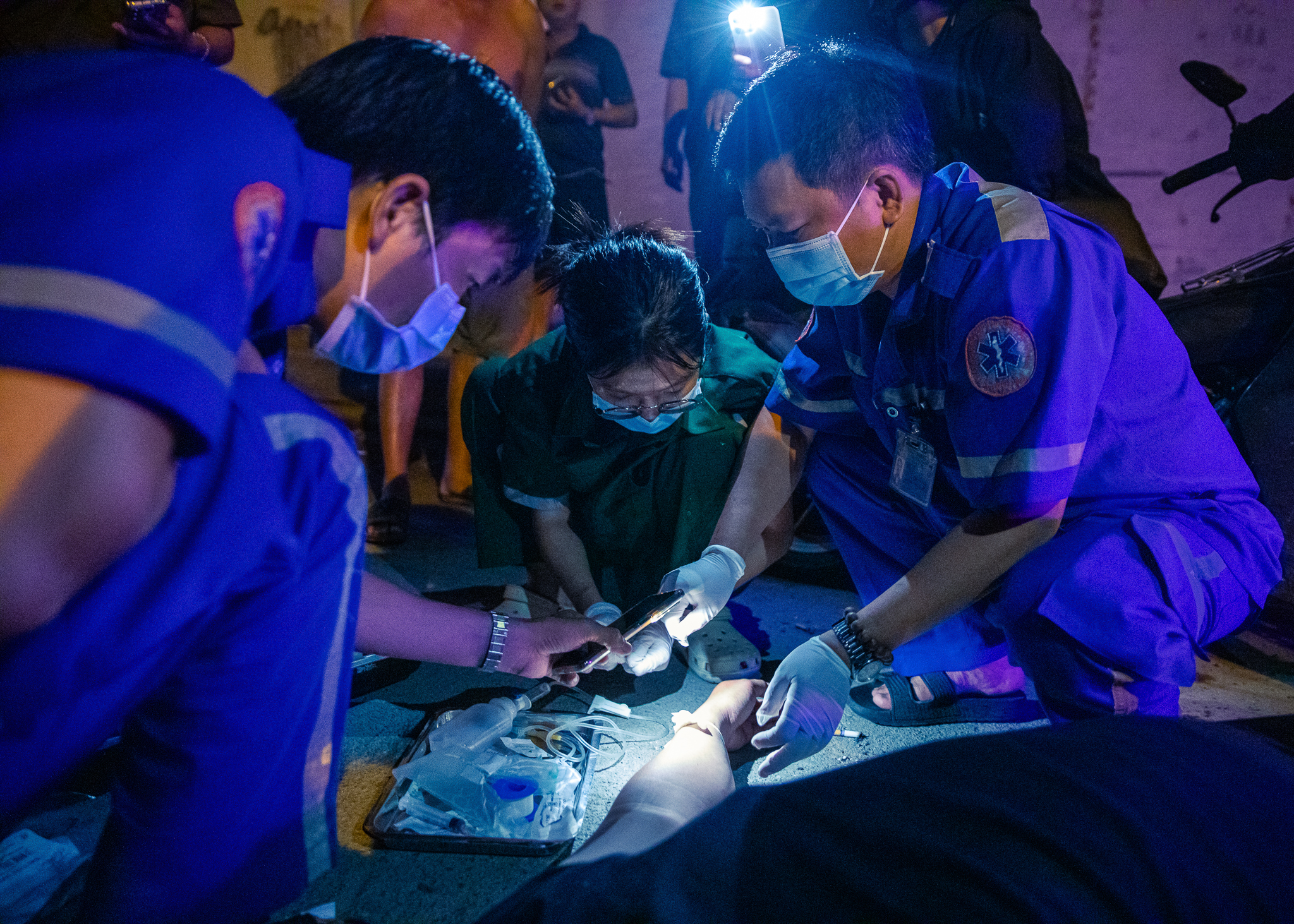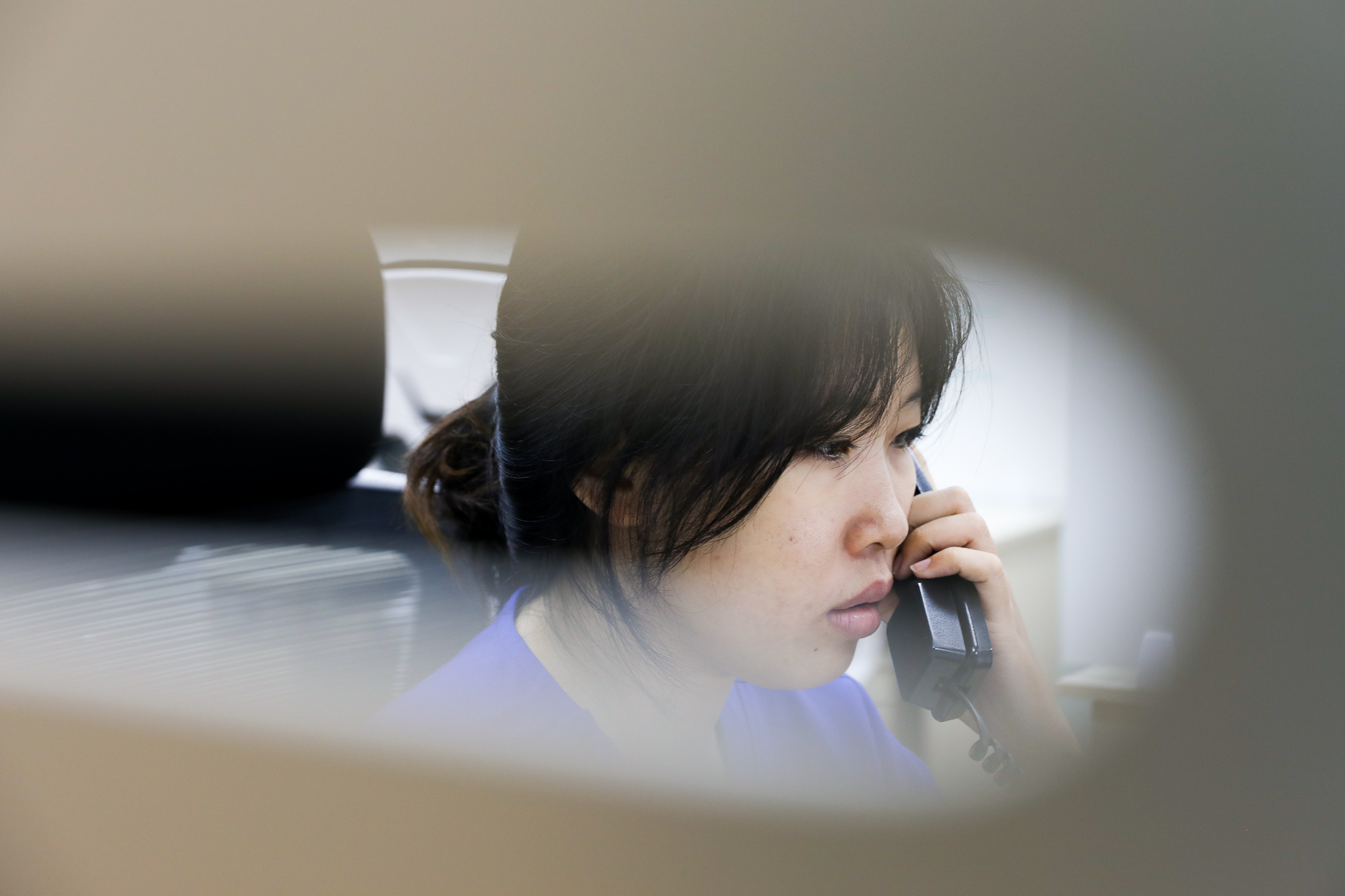Following VnExpress's series on the pressures of emergency medical services, many readers expressed sympathy for the difficulties faced by medical staff and raised the issue of appropriate compensation for these doctors.
"It's a truly demanding job. Performing continuous CPR on a patient for an extended period is incredibly exhausting. When they go home, they have to find other work to make a living, and they still stay up late studying and reviewing their professional knowledge," reader Kalymy O commented on the pressures faced by pre-hospital emergency teams.
Reader Tranhonamsan01 commented, "Public sector medical staff are the ones who deserve a raise the most." Reader Nguyenduykhanhcsdn argued that the time and cost of medical training are very high, but if graduates don't have a private practice and only live on their salary, it's not commensurate with their investment.
"There should be good treatment for doctors, nurses, paramedics, ambulance drivers, and even their children who are studying medicine," reader Hung Nguyen suggested.
Currently, a newly graduated doctor working in a public sector unit earns about 7 million VND per month (including a 40% occupational allowance, before insurance deductions). At the 115 Emergency Center, it's around 11 million VND.
"The current salary is only enough to cover living expenses, with no surplus. Compared to the cost and time invested in medical school, this income is not commensurate," said Dr. Nguyen Hoang Tu Minh, 29, from the 115 Emergency Center in Ho Chi Minh City. She plans to pursue a specialist degree (equivalent to a master's in medicine) after two to three years in pre-hospital emergency care for professional development and hopefully a higher income.
For 115 medical staff with families, income is an even greater burden. Le Thi Cam Nhung, 33, a dispatcher at the 115 Emergency Center in Ho Chi Minh City, said her salary of about 7 million VND per month significantly impacts her dreams of further education and family stability.
"It's a luxury for many dispatchers because life is always a struggle to make ends meet, let alone studying further to improve professional skills," she shared. She was forced to put aside her plans to pursue a bachelor's degree. Previously, she and some colleagues tried selling goods online after work to earn extra income.
Having worked in nursing for 20 years, Van Thai Minh, 43, transferred from Trung Vuong Hospital to the 115 Emergency Center in its early days. He currently earns about 16 million VND per month.
"My family is fortunate to have a pre-existing business, so we are less pressured about income," he said. However, many colleagues have resigned because they couldn't stand the work pressure and low salary; some have switched to business or transferred to other jobs.
 |
Van Thai Minh, 43 (far right), is finding a vein to insert an intravenous line for a traffic accident victim. Photo: Phung Tien |
Van Thai Minh, 43 (far right), is finding a vein to insert an intravenous line for a traffic accident victim. Photo: Phung Tien
According to Dr. Nguyen Duy Long, Director of the 115 Emergency Center, income is one of the factors directly affecting staffing levels. In 2017, 23 people resigned, including six doctors, resulting in the center losing nearly 30% of its doctors and 10% of its nurses. The number of medical assistants, technicians, drivers, and security guards also decreased significantly. The reasons were low income, lack of professional development opportunities, and a dangerous working environment.
This is also an obstacle in recruiting and expanding the pre-hospital emergency team. In 2022, despite the authorized staff size increasing to 357, recruitment remained challenging.
In 2018, the Ho Chi Minh City Department of Health proposed additional monthly income support for 115 Emergency Center staff: 6 million VND for doctors, 5.4 million VND for the management board, 3.6 million VND for university/college graduates, and 2.4 million VND for general laborers. However, this proposal has not yet been implemented.
According to Long, the most recent good news regarding income support for medical staff came from Resolution 08/2023, which regulates additional income payments in Ho Chi Minh City. Depending on the monthly performance evaluation, public sector employees at units like the 115 Emergency Center will receive an additional 1.5 times their salary. In addition, staff regularly assigned to direct patient care also receive a 60% occupational allowance.
However, this policy has not yet reached two crucial groups in the pre-hospital emergency system: dispatchers and ambulance drivers.
Long explained that under Resolution 08/2023, only public employees are eligible for the additional income, while drivers are classified as laborers and thus not included. Similarly, for occupational allowances, dispatchers are not considered "directly" involved in examination and treatment, so the allowance does not apply to them.
"This uneven coverage creates inequity within the system," Long commented.
 |
Dispatchers are the first point of contact for patients, paving the way for the emergency response. Photo: Phung Tien |
Dispatchers are the first point of contact for patients, paving the way for the emergency response. Photo: Phung Tien
In 7/2025, Minister of Health Dao Hong Lan said the ministry is proposing a level two salary ranking for doctors, preventive medicine doctors, and pharmacists. The ministry is also drafting a decree on occupational allowances (expected to be completed in December) and a decree on special allowances, epidemic prevention, and support for grassroots medical staff (expected to be completed in September).
Concurrently, the Ho Chi Minh City 115 Emergency Center is participating in developing a project to improve the pre-hospital emergency system, which includes proposing appropriate compensation for emergency personnel.
Nurse Van Thai Minh suggested that support for pre-hospital emergency staff could start with the night shift allowance, currently just over 100,000 VND. "If this amount is increased, it will be a great motivation for those in the profession," he said.
Nguyen Duy Long, Director of the 115 Center, said the drafting team is proposing increased income support. For example, doctors would receive an additional 1.5 times their salary, nurses 1.2 times, and other staff groups around one time their base salary. The new policy is also expected to expand training support, such as state funding for paid clinical practice or funding for short-term international courses to enhance professional skills.
"We hope that these support policies will be implemented soon so that medical staff can feel secure in their profession and thus serve the people in critical moments in the best possible way," Long said.
Phung Tien












